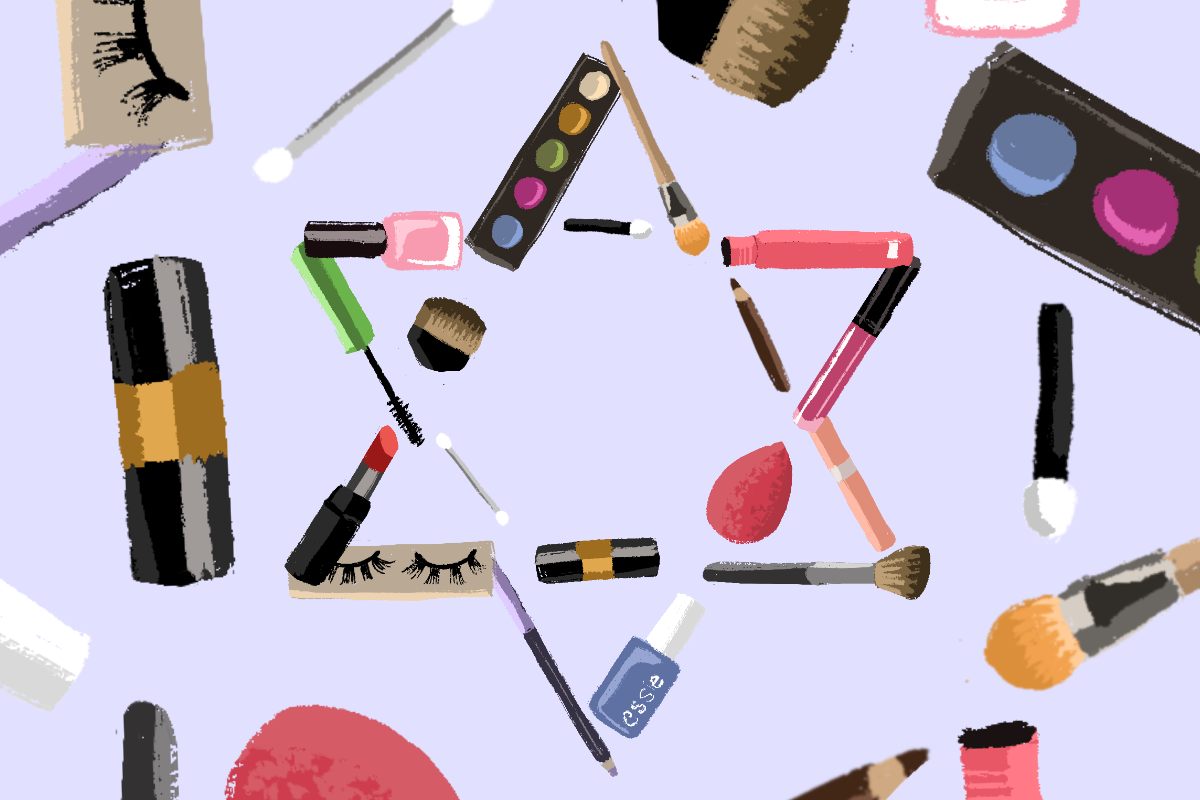Ah, makeup. Whether you wear a little, a lot, none at all, every day, or only on special occasions, it’s hard to deny that makeup is popular, controversial and not going anywhere. But how did it get here? And what do we, as Jews, have to do with it?
Cosmetics are ancient — the practice of painting your face to change your appearance, for beauty, or to intimidate your enemies in war, or even to keep the insects out of your eyes, dates all the way to prehistory. But the makeup industry as we know it today is relatively new — and Jewish men and women were at the forefront of it.
For much of the 19th century, makeup was for the few — the very wealthy and sex workers might wear makeup, but everyday people generally didn’t. However, in the 20th century, cosmetics became more acceptable for, and accessible to, everyone.
Because the makeup industry was relatively new, it was full of opportunity and existed outside the “old boys’ networks” and “gentlemen’s agreements” that kept Jews, women and other minorities out of many prestigious occupations. Famous names like Estee Lauder and Helena Rubinstein were in the position, as Jewish women, to found their own businesses in the early 20th century, in part because the power structures to stop them weren’t there yet. And they weren’t alone — Madam C. J. Walker became the first African American woman millionaire (and first self-made woman millionaire) through founding her own cosmetics company in the 1910s.
Another person who seized on the opportunity in this new industry — and another brand-new industry of the 20th century — was Polish-Jewish immigrant Maksymilian Faktorowicz. He began his cosmetics career making movie makeup for the fast-growing film industry in Hollywood. His products were so admired, he made the transition into consumer cosmetics, under a newly Anglicized name: Max Factor.
As the century wore on, Jewish women continued to make their mark in the cosmetics industry. Joan Clair Gelb and her husband Laurence were traveling in France when they discovered an innovating hair-coloring technique that French salons were using. They brought the preparation to America, where they founded a company named after Joan: Clairol.
Another pioneering woman was Hazel Bishop. Bishop was a trained chemist who understood that producing safe, high-quality cosmetics was a science. In the 1940s, following her mother’s advice to start her own business, she identified a need among women who wore makeup, and used her scientific knowledge to meet it, when she invented the first long-lasting lipstick.
While the Jewish trailblazers of the beauty cosmetics industry would continue for decades to come (ever used Essie nail polish? Thank Essie Weingarten, who founded the company in the 1980s), the Jewish connection to the beauty industry isn’t only important from the production side. The beauty industry has been a double-edged sword, but an important one, to consumers, especially marginalized women.
Makeup is controversial, it’s true. But cosmetics, and beauty labor, aren’t solely a force of social pressure. They can also be a way for women who are marginalized in one way or another to perform femininity, perform respectability, and as a result, force society to pay attention to them.
It is probably not a coincidence that people from marginalized and minority backgrounds, from Jews to women to African Americans, have found success in the beauty industry by developing and marketing products to people like them — people who the market had previously ignored. And it’s probably worth mentioning that their innovations helped make the class-driven language of beauty accessible to a wider group of people, whether that was by making cosmetics more affordable to a wider group of consumers, or creating products like Hazel Bishop’s long-lasting lipstick and Essie Weingarten’s durable nail polish, that meant people with less time to spare and more physical labor to do could access the same products and “look” as their wealthier peers.
The rising beauty industry, like the film industry, afforded opportunity to people who were otherwise shut out. But unlike the film industry, cosmetics could be a chance for consumers to access a visual language that brought opportunities of its own. And while which cosmetics to use and how to style yourself is and always should be a personal choice, we should remember that the beauty industry is not frivolous — it’s powerful. Making it more accessible, to people of all backgrounds, isn’t just a clever business tactic — it’s a way of sharing the power.



